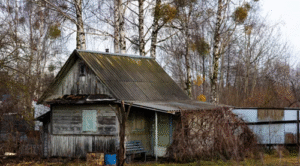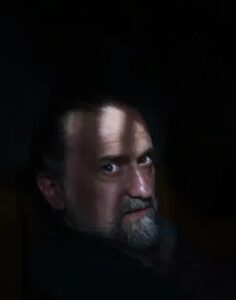My Daughter Was Gone, Her Husband Walked Away—So I Raised Their Boy. Two Decades Later, the Past Knocked on Our Door

I never set out to become anyone’s anchor. I was a school librarian—quiet, reliable, the sort of woman who found comfort in tidy shelves and penciled due dates. Fridays meant blueberry muffins cooling on the counter and a stack of knitting in my lap while the radio hummed old hymns. People in town said I was steady. They didn’t know that steadiness is something you practice, like scales, until one day you need it to survive.
My name is Margaret, and everything I believed about ordinary life shattered the afternoon the phone rang.
It started as so many days had: a grocery list on the fridge, a pot of soup burbling, my daughter Anna’s voice in my ear. She was laughing about something Ethan—my grandson, curls like soft clouds—had said at preschool. The weather had turned ragged, rain shouldering the windows, but I didn’t think much of it. You never do, until the world tilts.
The call came an hour later, a voice I didn’t recognize using words I refused to understand: mechanical failure… no survivors… we’re so sorry. I remember the mug slipping from my hand, a shatter and then silence. I don’t remember the sting of glass in my palm, only the taste of her name in my mouth as I said it again and again, as if I could speak her back into the room. Anna—twenty-seven, stubborn like me, smile like her father’s—was gone.
Ethan was three. He didn’t know what death meant, only that the air had grown heavy. He pressed his cheek into my sweater, his fists clutching the yarn like it might hold him to the earth. That night, and the night after, and hundreds more, I told him stories about his mother—the way she whistled when she cooked, how she cried at commercials, how she counted stars for him in the backyard. I thought grief would be our mountain to climb, the hardest thing we would ever do.
I was wrong.
Weeks later, the doorbell rang. On the porch stood Mark—my son-in-law—gaunt, jittering, Ethan’s small suitcase at his feet. He didn’t meet my eyes. He didn’t step inside.
“I can’t do this,” he said, like he was returning something that didn’t fit. “I’m young. I want my life back. You take him. You’ll manage.”
“Mark,” I said, voice thin as thread, “he’s three.”
He lifted a shoulder. “I’ve met someone. I’m moving. This… isn’t what I want.”
He turned, walked down the steps, and drove away. No goodbye. No second glance. On the porch boards, Ethan tugged his stuffed rabbit by the ear and hummed a tune he’d heard on the radio, the kind children hum when they trust the world to be kind.
I gathered him into my arms. “It’s you and me now,” I whispered into his hair. “I’ve got you.”
And that became the beginning of our second life.
The House that Kept Us
We stayed in Anna’s small two-bedroom—linoleum floors, a yard that always needed more of me than I had to give, and windows that collected the evening light like a blessing. The place held her everywhere: the lavender soap, the lists still magneted to the fridge, a sweater abandoned across the back of a chair. For months I moved carefully, as if noise might chase her memory away.
Money narrowed around us. I took early mornings at Mrs. Sutton’s bakery and late nights cleaning medical offices—the kind of quiet work where floors gleam and nobody thanks you. My feet learned a new ache. Flour dusted my hair like a winter that wouldn’t melt. But every time the key turned and Ethan barreled into my arms, something inside me unclenched.
I gave him childhood with whatever I had: birthday cakes stacked slightly crooked, forts made of quilts and kitchen chairs, Saturday cartoons with pancakes, fireflies in mason jars. When Father’s Day rolled around, I told him we could celebrate any man who showed up kindly in the world—Mr. Jensen, who taught him to ride a bike; Pastor Ruth’s husband, who tuned up the lawn mower. Ethan never asked why his own father didn’t call. Children learn what silence means long before we think they do.
“Grandma, let me,” he’d say, rounding his shoulders under a bag of groceries too heavy for him. “You rest.” He folded laundry with adult seriousness and a boy’s mistakes—sleeves twisted and socks never quite paired. The first time I found him standing on a chair to reach the sink, washing dishes the size of his head, I cried quietly at the doorway, not from sadness but from the shocking size of his heart.
We grew into each other. We built routines that made sense of our days. He became my shadow, my chatter at the dinner table, my companion on walks through the neighborhood where the dogwoods leaned like eavesdroppers. I tried to be both grandmother and harbor, steady enough that the world’s harshness broke against me instead of him.
Years turned, the way they do. He grew tall before my eyes, his laugh deeper, his kindness intact.

The Gift I Didn’t Know How to Accept
At twenty-five, Ethan arrived home with a manila folder and a look I didn’t recognize: a mix of pride and fear. He sat me at the kitchen table—still the same one where I’d kneaded dough and paid overdue bills.
“This house is ours,” he said, patting the folder. “But I don’t want you here alone anymore. Your health… well, I want you looked after. Come live with me. With us.”
“Ethan,” I said, startled into refusal, “you need your own life. I won’t be in the way.”
His smile softened. “You’re not in my way. You made my way.”
We moved to a place I still can’t quite believe exists. White stone and sunlight, long hallways that carry music even when no one is playing. The kitchen gleamed like a showroom; I had to ask the housekeeper how to coax the oven into life. There was staff—gentle people who tried to take tasks from my hands until I let them. “Grandma,” Ethan would say, pressing a kiss to my hair, “you’ve earned rest three times over.”
I learned to accept comfort slowly. I kept a balcony garden of herbs and read in a chair that hugged my old bones. Every evening, Ethan stopped by my door, tie loosened, tired but present.
“Did you eat?” he’d ask. “Do you need anything?”
“What I needed,” I’d tell him, “I already have.”
The old house, though, lingered in our lives like an unfinished sentence. Time had unstitched it—paint curling, floorboards bowing, weeds grip-tight along the walkway. We talked about selling, but whenever I brought it up, Ethan shook his head. “I’m not ready,” he said. “It’s more than boards and shingles.”
And he was right. That house held the compass of our survival.

When the Past Found Our Address
The call came from Mrs. Palmer, our old neighbor, the kind woman who left peonies on our porch in spring.
“Margaret,” she said, lowering her voice as if the phone were a confessional, “don’t panic. But Mark’s back.”
My hands went cold. She told me she’d seen him step out of a battered car, stand and stare at the sagging porch, ask questions to anyone who’d listen. Where are they? What happened? Mrs. Palmer had simply shrugged, her loyalty quiet and fierce: “Haven’t seen them in years.”
Ethan, hearing my side of the conversation, took the phone. “If he wants answers,” he said, calm as a lake, “tell him to come here. I want him to look me in the eye.”
“You don’t owe him a single breath,” I said, the old fear rising.
“I know,” he answered. “But I owe myself the truth.”
Two days later, gravel crunched in the driveway. Mark stepped out, thinner, older, the swagger still stitched to his posture like a mistake he’d never unlearned. He scanned the manicured lawn, the polished railings, the careful beds of flowers.
“Well, well,” he said, smile small and sharp. “Son, you’ve done well.”
Ethan flinched at the word son but kept his voice even. “What do you need, Mark?”
Mark produced an envelope and let it fall at Ethan’s feet like a gauntlet. Inside was paperwork claiming co-ownership of the old house—legal phrases arguing that absence didn’t void entitlement.
“I’ll take the ruins,” he said, cracking his knuckles. “You keep the palace. Sign, and we all get what we deserve.”
Ethan didn’t so much as glance at the pages. “That house,” he said, “is where I learned to ride a bike and where Grandma taped glow-in-the-dark stars to my ceiling so I wouldn’t be afraid. It’s where birthdays tasted like vanilla even when the power went out. It’s not a bargaining chip.”
Mark’s smile thinned to nothing. “You owe me. Without me, there’s no you.”
Ethan’s eyes were steady. “Without her,” he said, nodding toward me, “there’s no me worth knowing. You gave me life and walked away. She gave me everything else.”
He handed the envelope back. “There’s no place for you in my home or my memory. Please leave.”
We closed the door gently, like you would on a draft. I stood still, feeling something that wasn’t quite victory and wasn’t quite grief—a quiet certainty that some doors, once locked, keep you warm.

What Love Decides
Mark drove by once more, Mrs. Palmer reported, slow enough to memorize the weight of what he’d abandoned. He didn’t stop. He didn’t call. I felt no triumph, only a soft pity for a man who had mistaken freedom for emptiness and then discovered the difference too late.
That evening, Ethan spread papers across the sunroom table: sketches, estimates, a timeline. “I want to restore the old house,” he said, voice almost shy. “Not to escape the past, but to honor it. To keep what mattered.”
“Are you sure?” I asked. “It’s a lot of work.”
He smiled. “Everything good we’ve done has been.”
We walked through that house a week later, our footsteps stirring dust the way hands stir flour. Sunlight fell through broken blinds in bright ladders. In the living room, I could still see Ethan at six, launching toy rockets. In the kitchen, I could almost hear Anna’s whistle. We touched the walls like you would an old friend’s hands.
“This is where we start again,” Ethan said.
I nodded, feeling tears slip warm and unashamed. “It always was.”
Because here is what our years taught me: family is not the people who claim you when it’s convenient; family is the ones who stay when the world falls apart and help you build something livable from the rubble. Paper can name an owner. Blood can write a lineage. But love—daily, ordinary, relentless—decides who belongs.
The house will have new paint and strong boards soon. The garden will learn our names again. On the front porch, we’ll set out two rocking chairs, and in the evenings we’ll count the same stars I once stuck to a small boy’s ceiling.
It was Ethan and me in the beginning, and it is Ethan and me now—proof that sometimes the smallest home can hold the largest life, and sometimes the life you never expected becomes the truest one you could have hoped for.